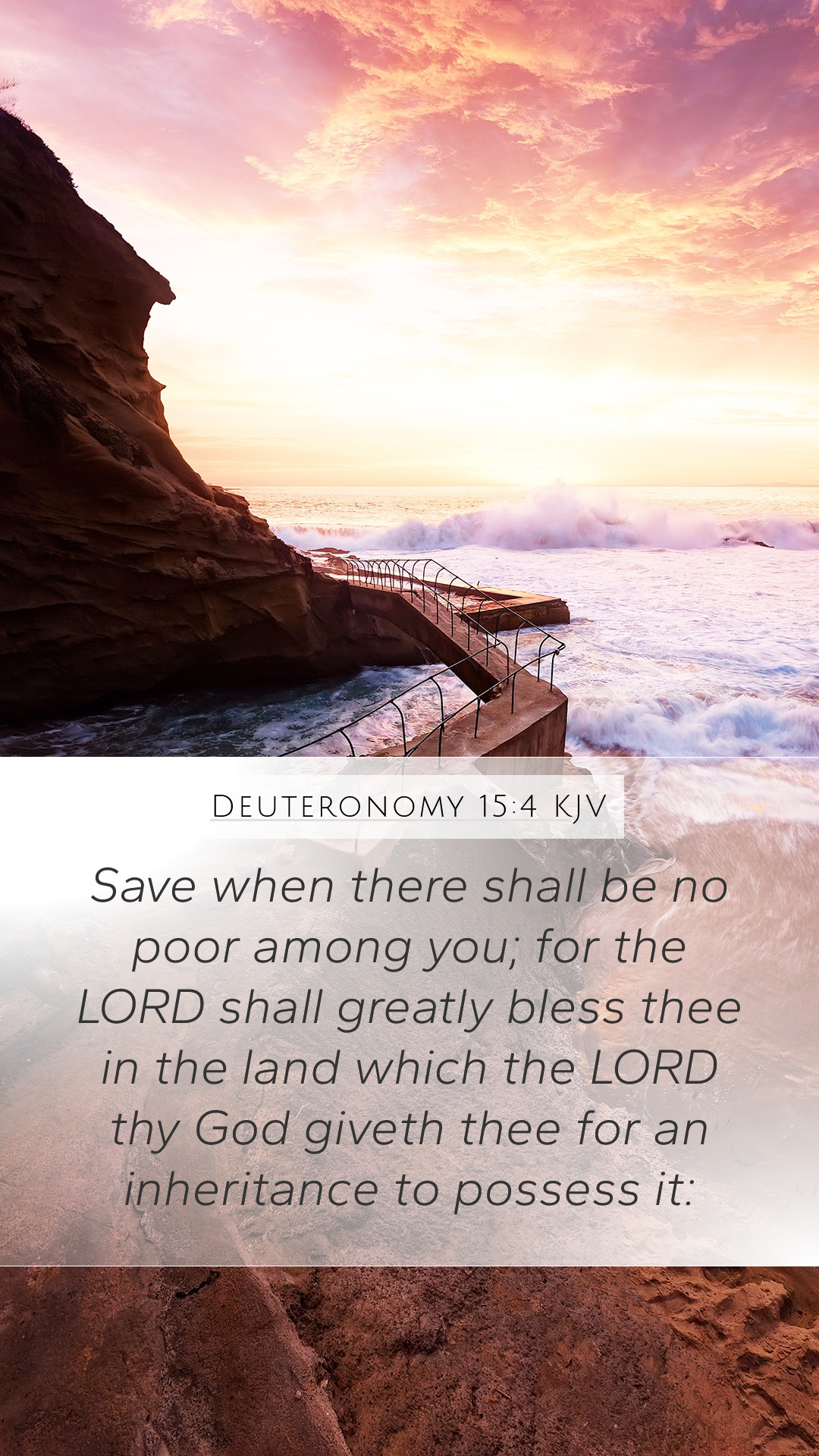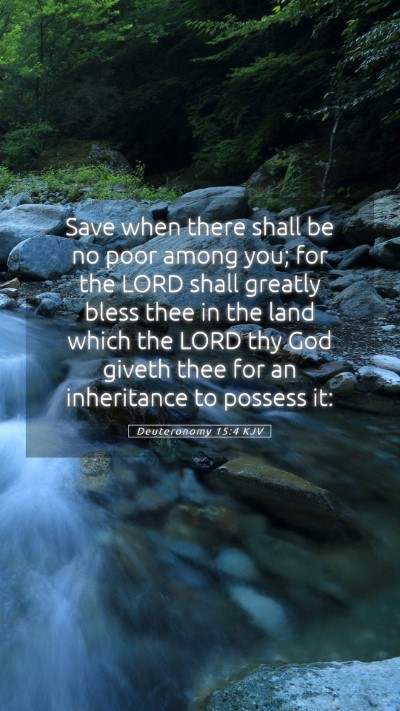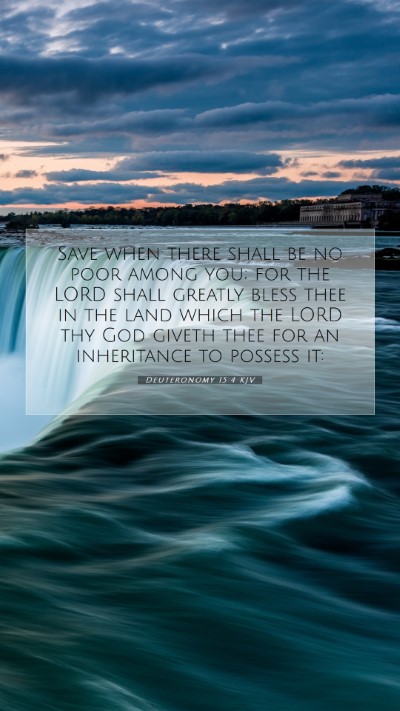Bible Verse Meaning: Deuteronomy 15:4
Bible Verse: "However, there need be no poor people among you, for in the land the Lord your God is giving you to possess as your own, he will richly bless you, as he has promised." - Deuteronomy 15:4 (NIV)
Understanding Deuteronomy 15:4
This verse is a part of the larger context within the Mosaic Law, specifically addressing economic provisions for the Israelites. It speaks to God's intention for His people to thrive in the Promised Land and eliminate poverty among them.
Insights from Commentaries
- Matthew Henry: He explains that God's covenant with Israel included promises of abundance and blessings, asserting that true obedience to God's commands would lead to social justice and communal well-being. Henry emphasizes that if God’s laws were followed, everyone would have ample resources, creating an environment devoid of poverty.
- Albert Barnes: Barnes notes that the conditional promise is crucial; it hinges on the people's faithful observance of God's laws. He points out that while God desires to bless His people, their willingness to adhere to divine principles directly affects their prosperity and the absence of poverty among them.
- Adam Clarke: Clarke adds a historical context to the verse, highlighting how the Israelites were to model their society on God’s distributive justice. He underscores the importance of generosity and providing for those in need, reflecting that the ideal society would be one where the wealth is shared and utilized for the common good.
Theological Implications
Deuteronomy 15:4 encourages believers to reflect on God's provision and care for the marginalized. This verse emphasizes God's desire for equity and community support rather than individualism and economic disparity. Therefore, it outlines a call for the faithful to practice social justice as an integral part of their faith.
Application in Daily Life
For today's believers, this verse serves as a reminder of the importance of community support and generosity. It urges individuals to consider their resources and how they can help alleviate financial difficulties for others. Practical applications may include:
- Engaging in community service or charity work
- Supporting local businesses to aid economic growth
- Participating in or organizing food drives and fundraisers
- Encouraging transparency and accountability in communal finance
Related Bible Verses
- Leviticus 25:35 - "If any of your fellow Israelites become poor and are unable to support themselves among you, help them as you would a foreigner and stranger, so they can continue to live among you."
- Psalms 37:25 - "I was young and now I am old, yet I have never seen the righteous forsaken or their children begging for bread."
- Isaiah 58:10 - "And if you spend yourselves in behalf of the hungry and satisfy the needs of the oppressed, then your light will rise in the darkness, and your night will become like the noonday."
Conclusion
In summary, Deuteronomy 15:4 underscores God's intention to remove poverty through collective responsibility among His people. By analyzing this verse through the insights of respected commentators, we gain a robust understanding of its implications for both ancient Israel and contemporary society. This enhances our Bible verse understanding and Bible verse interpretations, leading to practical applications in our lives as believers.
As you engage in Bible study, consider how this verse and its interpretations can reshape your approach to charity, community, and justice.


